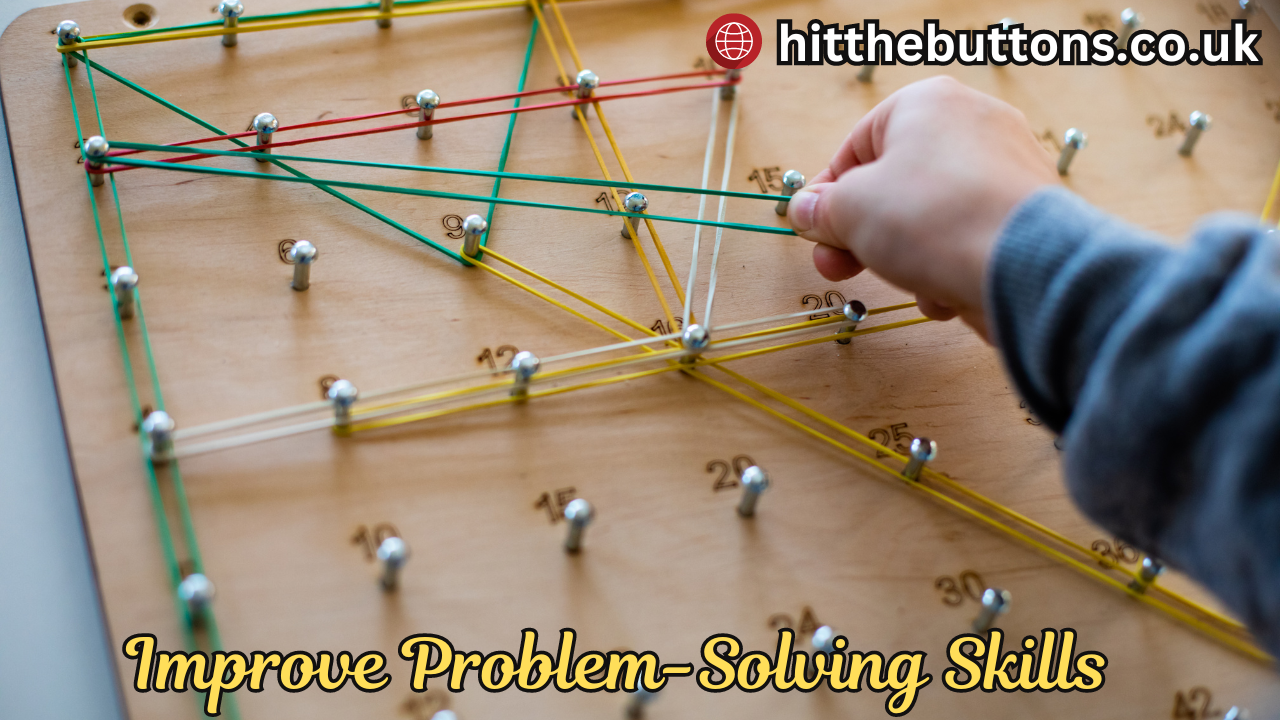Math games are more than just a fun way to pass the time. Math games that improve problem-solving skills offer an exciting avenue for developing essential cognitive abilities while making math enjoyable. You might be surprised at how engaging numbers can become when they’re paired with a bit of playfulness!
Why Math Games?
These games create an interactive environment where learners can tackle challenges in a low-pressure setting. Instead of traditional worksheets, math games encourage hands-on learning. Kids are often more motivated to engage with math when it feels less like work and more like play—so hit the button quick maths!
Benefits Beyond Numbers
Not only do math games help improve numerical skills, but they also cultivate important cognitive abilities. Skills like strategic thinking, logical reasoning, and persistence grow through gameplay. Who knew playing could lead to such incredible growth?
Types of Math Games
When it comes to math games, variety is the spice of life! Here’s a rundown of some exciting options to consider.
Board Games
Board games are a classic choice for family game nights. They offer social interaction and competitive fun, all while sneaking in math practice.
Examples of Board Games
Games like Monopoly or Settlers of Catan require players to use math in calculating costs, resources, and strategic moves. Each turn is an opportunity to practice addition, subtraction, and even multiplication!
How They Enhance Skills
Players must think critically about their next moves and consider the consequences of their actions, honing their problem-solving skills. It’s a win-win situation!
Card Games
Card games provide an easy setup and can be tailored to fit any age group.
Fun Card Games for All Ages
Consider games like Uno or Skip-Bo. While they may seem simple, they involve strategy and quick calculations, making them great tools for practicing math.
Skills Developed Through Card Games
These games encourage quick thinking and enhance numerical fluency. Plus, they can easily be adapted for different levels of math difficulty.
Online Math Games
In the digital age, online math games are a fantastic way to engage students.
Interactive Platforms
Websites like Khan Academy or Prodigy offer interactive math challenges that adapt to the user’s skill level. This personalization keeps kids engaged and motivated.
Engaging Apps and Websites
Mobile apps like Mathway or DragonBox combine fun graphics with educational content. They can turn mundane math problems into exciting challenges!
Outdoor Math Games
Who says math has to be confined to a desk? Outdoor math games can incorporate movement and real-world problem-solving.
Incorporating Movement
Games like scavenger hunts or math relays make math active and engaging. Players can solve problems as they run from one point to another, making learning dynamic.
Real-World Applications
Using math in outdoor settings helps students see its relevance in daily life, reinforcing what they learn in the classroom.
Developing Problem-Solving Skills
Now, let’s break down what makes problem-solving skills so important.
What Are Problem-Solving Skills?
These skills encompass the ability to identify problems, develop solutions, and implement them effectively. It’s about thinking on your feet and adapting strategies when faced with challenges.
How Math Games Encourage Critical Thinking
By presenting problems in a playful context, math games encourage players to think critically about how to approach challenges. Every game presents a unique situation that requires analysis and decision-making.
Popular Math Games
Here are some standout games that can seriously amp up your math skills!
Classic Games with a Twist
Think about classic games like Battleship. Players can modify rules to incorporate math elements, such as coordinates or calculating the probability of hits.
Innovative New Games
Newer games, like Sum Swamp or Fraction Frenzy, have emerged specifically designed to strengthen math skills. They’re fun and focus on specific areas of mathematics, making them perfect for targeted learning.
Tips for Incorporating Math Games
Here are some easy tips to seamlessly weave math games into everyday life.
Age-Appropriate Selections
Choose games that match the player’s age and skill level. This ensures that the game remains challenging yet accessible.
Balancing Fun and Learning
Aim for a balance between educational value and enjoyment. When kids are having fun, they’re more likely to absorb the material!
Recap of Benefits
Remember, playing math games enhances cognitive skills, fosters collaboration, and encourages critical thinking. Plus, they’re a great way to bond with friends and family!
Encouragement to Play
So, gather your friends or family, pick a game, and dive into the world of math! You might just surprise yourself with how much you learn while having a blast.
Conclusion
Math games offer a unique blend of fun and education. They help build problem-solving skills while making numbers less intimidating. So, why not grab a board game or download an app? Engage in some math play today!
Math Games That Improve Problem-Solving Skills FAQs
-
What age group is suitable for math games?
Math games can cater to all ages, with specific games designed for different skill levels.
-
Can math games be played alone?
Absolutely! Many online math games allow for solo play, making them perfect for individual practice.
-
Do math games really improve skills?
Yes! They provide a fun way to practice math while developing critical thinking and problem-solving abilities.
-
How often should math games be played?
Regular play can enhance learning, so incorporating them into your weekly routine is a great idea!
-
Are there free resources for math games?
Many websites and apps offer free math games, making them accessible to everyone.
